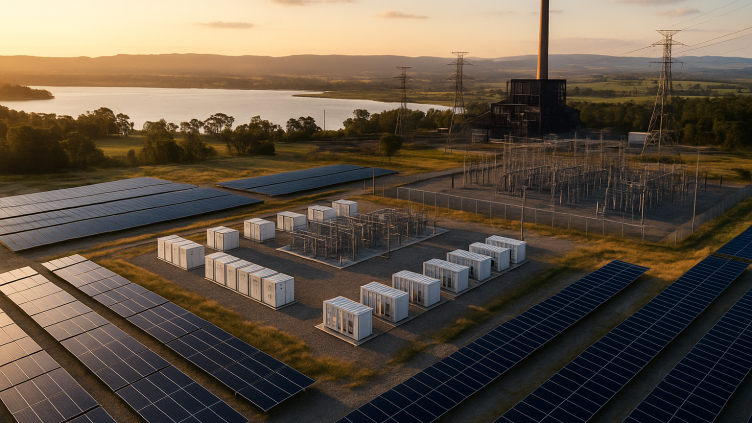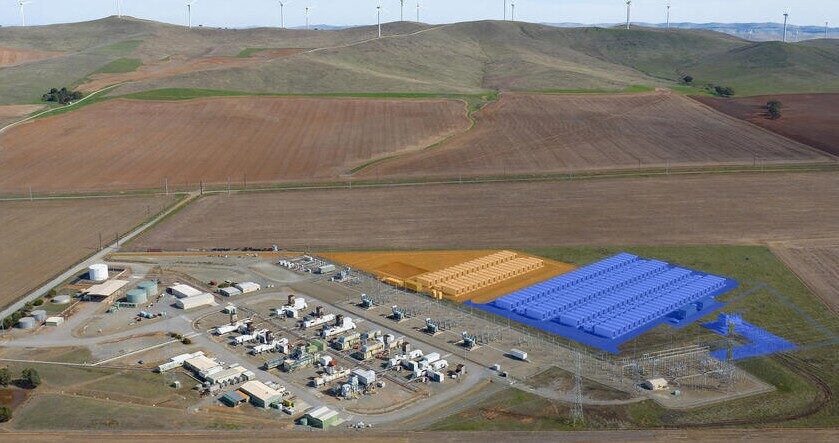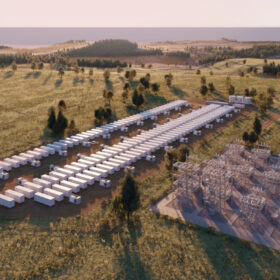Energus will look at developing a solar-grade polysilicon production facility at AGL’s proposed Hunter Energy Hub after securing $1.3 million (USD 850,000) in funding as part of the federal government’s Solar Sunshot program, aimed at building Australia’s solar manufacturing industry.
The Australian Renewable Energy Agency (ARENA) said the funding will support a feasibility study for a polysilicon production facility of 10-40 GW in capacity that produces 50,000 tonnes of solar-grade polysilicon per annum.
Sydney-headquartered Energus said the study will assess the technical, commercial, and environmental viability of producing high-purity polysilicon – one of the most critical materials in the solar supply chain – in Australia.
Polysilicon is currently almost entirely imported into Australia but Energus Managing Director Jenny Lu said is successful, the proposed Hunter Valley facility will reduce reliance on overseas supply chains and enable end-to-end solar manufacturing integration within Australia.
“The polysilicon facility at the Hunter Energy Hub represents a strategic opportunity to anchor a critical link in the solar supply chain, and Energus is proud to be at the table,” she said.
The Energus feasibility study is one of three supported in the latest Solar Sunshot funding round that aims to accelerate domestic production of upstream solar components.
“These studies will explore local production of polysilicon, ingots and wafers, which are critical components in solar panel manufacturing,” ARENA said, noting that Australia has the raw materials and expertise to manufacture these components locally.
“Australia is rich in raw materials and well positioned to manufacture the upstream components that will drive our solar future and help strengthen Australia’s energy independence, add value to international supply chains and create new opportunities in clean energy manufacturing,” it said.
The Energus project would form part of AGL’s planned Hunter Energy Hub that aims to transform its Hunter Valley coal-fired power plant sites into a major renewable energy and industrial hub.
The proposed hub, set across 10,000 hectares, is to incorporate renewable energy generation, grid-scale batteries, green advanced manufacturing, and associated industries.
AGL has already announced a memorandum of understanding with solar cell technology innovator SunDrive Solar to explore the development of a commercial-scale PV manufacturing facility in the region. It has also struck an agreement with Australian battery recycling startup Renewable Metals to investigate the viability of building a lithium battery recycling facility at the site.
“We’re bringing together industries that can make a positive contribution to the energy transition, from green advanced manufacturing and waste recycling to grid-scale batteries and energy generation,” AGL said.
“Our vision is for this integrated energy hub to become a circular economy, where the waste of one industry becomes the input of another.”
The Solar Sunshot initiative is a key part of the federal government’s Future Made in Australia agenda. The program is being rolled out in stages, with $500 million already allocated for capital and production-linked funding through Round 1A, and $50 million still available for feasibility and engineering studies under Round 1B. Round 2 is expected to open this month.
This content is protected by copyright and may not be reused. If you want to cooperate with us and would like to reuse some of our content, please contact: editors@pv-magazine.com.









3 comments
By submitting this form you agree to pv magazine using your data for the purposes of publishing your comment.
Your personal data will only be disclosed or otherwise transmitted to third parties for the purposes of spam filtering or if this is necessary for technical maintenance of the website. Any other transfer to third parties will not take place unless this is justified on the basis of applicable data protection regulations or if pv magazine is legally obliged to do so.
You may revoke this consent at any time with effect for the future, in which case your personal data will be deleted immediately. Otherwise, your data will be deleted if pv magazine has processed your request or the purpose of data storage is fulfilled.
Further information on data privacy can be found in our Data Protection Policy.